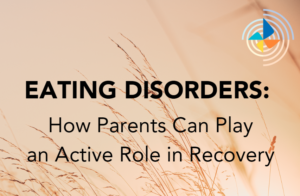Why are eating disorders dangerous?
Medical Complications
Eating disorders can do a lot of damage to your health. People with eating disorders often don’t get the nutrients their bodies need to stay healthy and work properly. For example, people with eating disorders are at risk of heart or kidney failure leading to death if they are not treated.
“The harder I held on to the food, or lack of it, the faster I lost myself. I could see nothing but ED. I knew nothing but ED and I just couldn’t stop. As my body began to fail…as I began to fail…I believed with all of my being I was a failure.” ~ Melanie
Some symptoms of anorexia nervosa are:
- thin, weak bones (osteopenia or osteoporosis)
- hair and nails that break easily
- dry and yellowish skin
- fine hair growing all over the body (lanugo)
- low iron levels and weak muscles
- constipation
- low blood pressure, slowed breathing and pulse
- drop in body temperature, feel cold all the time
- lack of energy
- (for girls and women) not having periods
Some symptoms of bulimia nervosa are:
- sore throat
- swollen glands in the neck and under the jaw
- decay in tooth enamel and very sensitive teeth
- heartburn
- pain in the stomach and intestine
- kidney failure
- dehydrated
People who try to get rid of calories after they eat by throwing up (or other forms of purging) will have many of these symptoms.
People with binge-eating disorder (BED) have regular episodes of binge eating (eating large amounts of food, and losing control of their eating). People with BED are at risk of developing:
- type 2 diabetes
- high cholesterol
- high blood pressure
- digestive problems
- heart problems
Some of these complications can also be caused by an unhealthy eating pattern —for example, frequent dieting.
Pregnancy and Eating Disorders
Pregnancy can be a difficult time for people who have experienced disordered eating or eating disorders. Those who are struggling with their eating or have a negative or distorted body image may have a hard time dealing with weight gain during pregnancy. Some may find it difficult to eat what is needed to support health and development. There are also many health risks for people with eating disorders during pregnancy. It’s very important to get help for an eating disorder. They can cause many serious health problems. Eating disorders can be treated. Many people can improve their quality of life, or recover from an eating disorder, with support from different health experts. Regular medical check-ups can help identify and treat any concerns about physical health.
Diabetes and Eating Disorders
Type 1 diabetes is caused by genetics. People with Type 1 are born with the problem and cannot fix it by a change in lifestyle. Their bodies do not make enough insulin. They have to give themselves an injection of insulin every day to keep their blood sugar down. Type 1 diabetes is usually diagnosed in childhood.
People with Type 1 diabetes are at increased risk of developing an eating disorder. We don’t know exactly why. It may be because they have to pay more attention to food and changes in their weight. People with Type 1 diabetes need to watch their insulin levels very carefully and eat in a way that manages their blood sugar. Some people misuse their insulin in order to try to control their weight. This can be very dangerous for their health, and is considered to be a type of “purging”.
You can develop Type 2 diabetes as a side effect of having a body mass index in the “overweight” range, or as a result of disordered eating habits. People with Type 2 diabetes have bodies that don’t react to insulin the way they are supposed to. Their bodies make insulin, but their blood sugar still stays very high. Diabetes can also affect how a health professional treats an eating disorder. For people who have both diabetes and an eating disorder, it is important to co-ordinate diabetes care and mental health treatment.



